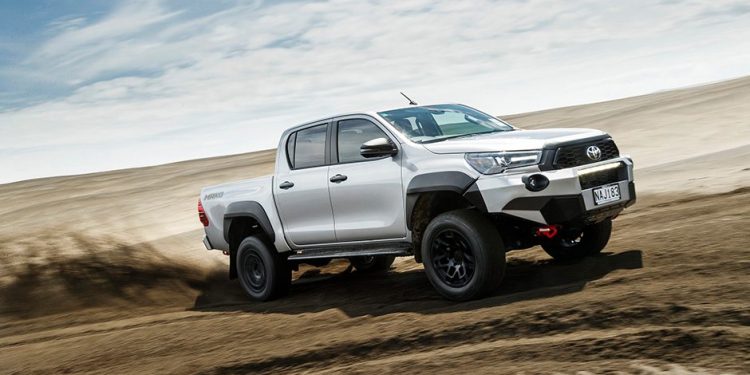Toyota rumoured to be developing hybrid diesel engine
While diesel engines these days are fairly efficient things, most industry pundits are tipping that they’ll be on the outer by the end of the decade as public enemy number one of the likes of Euro 7.
However, it appears that Toyota thinks differently. A report from Japanese outlet BestCarWeb has indicated that the brand is currently developing a new diesel hybrid powertrain, giving diesels a potential lifeline into the 2030s.
The report adds that Toyota is fast-tracking the roll-out of electrified hybrid versions of models not currently offered with a hybrid option. This is alongside the brand’s already detailed aims to add 15 fully electric vehicles to its line-up in the coming years.
If successful, the diesel hybrid would be ideal for Toyota and popular models like the Hilux and Land Cruiser. It might even give the marque an edge on other brands, most of which are likely to pull the plug on diesel in the medium term.
It’s not the only time Toyota will have gone against the technological grain.
The firm is often considered to be the one that made hybrid cars mainstream thanks to the first-gen Prius. It’s also currently sinking plenty of investment into hydrogen tech; both in terms of producing new hydrogen fuel-cell vehicles and working on getting standard internal combustion engines to run on hydrogen.
Diesel-based hybrids aren’t exactly rocket science, although they are uncommon. Peugeot and Audi have both offered diesel hybrids, for example.
The rumour adds a new dimension to the lengthy speculation around when Toyota would produce an electrified version of the Hilux. Speaking earlier this year, Toyota New Zealand CEO Neeraj Lala said that a fully electric Hilux is out of the question for the next two years at least.
“Based on feedback from members of the Association, one or two brands are working hard to get in a fully electric ute, but our expectation is plug-in hybrid (PHEV) utes might become more widely available by 2025 and full battery electric (BEV) utes after that,” he said.





